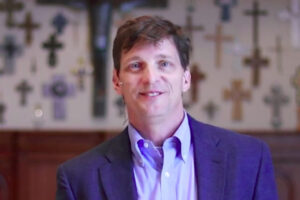
Against the Prattling Preacher
I used to be a good listener. Then I became a Senior Pastor and Senior Pastors talk. On Sundays we read Scripture from elevated platforms and, with the eyes and ears of our parishioners fixed on us, we proclaim eternal truths, holy mysteries, and the greatness of God’s grace and call for believers’ lives. That’s just the start. During the week, we lead ministries and meetings, we officiate funerals, weddings, and other events, we pray, we preach more, we give pastoral counsel, we guide staffs, we give opinions (on everything!), we teach classes, lead small groups, and instruct confirmands. In other words, pastors have answers, solutions, and sought-after spiritual acumen. Pastors, then, become creatures of ubiquitous utterance simply because we have ventured into the pulpit on Sundays.
I’m not the only one who has noticed this trend. A friend recently shared insight learned from his mentor. “We’re taught [in seminary] how to talk. None of us had a class in how to shut up.” Dietrich Bonhoeffer incriminates us all when he writes, “Many people are looking for an ear that will listen. They do not find it among Christians, because these Christians are talking where they should be listening. But he who can no longer listen to his brother will soon be no longer listening to God either; he will be doing nothing but prattle in the presence of God too.” Our current context of so-called influencers and social media platforming seems only to aggravate our tendencies.
Much of the preacher’s talking is a good thing. After all, we proclaim the comfort and hope found in Christ. It is true, sometimes we talk too much, if not too long on Sundays (and in journal articles). Accustomed to people looking to us for answers, we frequently impart our thoughts, ideas, and insights without giving meaningful consideration to what others are actually saying (read thinking and feeling). In other words, we too easily, in too many situations, assume the role of expert and we begin to prattle.
The Antidote to Prattling
All this is to say, I used to be a good listener but then I became a Senior Pastor and I started talking. Bonhoeffer was right, though, all this talking can be problematic and it can be an incumbrance for the pulpit and the preacher’s wider ministry. The antidote for this pastoral predicament is grace. Cooperatively, the spiritual disciplines provide opportunity for the preacher to live into that grace. Of those habits, Lectio Divina is particularly helpful for the case of the prattling preacher.
The practice of Lectio Divina, or Divine Reading, is aptly named because we read the Divine Word of God. However, Lectio is very much an exercise in listening. The Word we read invites us to listen. “Hear, O Israel,” was the invitation of YHWH to the Israelites (Dt 6:4), and in the New Testament James tells us to be quick to listen and slow to speak (Jas 1:19). The expected fruit of listening is a loving response (Dt 6:55ff; Jas 1:22). What we hear leads to change.
Indeed, the Word of God itself is revelatory and transformative. Hebrews 4:12-13 tells us, “the word of God is living and active. Sharper than any double-edged sword, it penetrates even to dividing soul and spirit, joints and marrow; it judges the thoughts and attitudes of the heart.” Similarly instructive is the Lord’s gift of a scroll to Ezekiel with words to speak to God’s people. Before Ezekiel proclaims publicly the word of God, he will first eat the words of lament, mourning, and woe. Only having tasted and gotten his fill, making it his own, will he make public proclamation (Ez 2-3). The very nature and purpose of Scripture, then, commends the practice of Lectio and is good remedy for the preacher who has become too accustomed to hearing his own voice.

